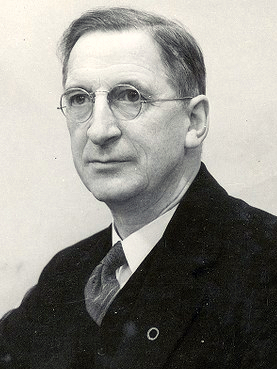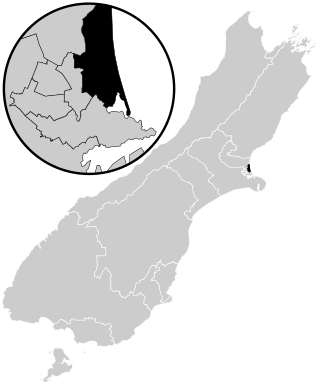Related Research Articles

The 1944 Irish general election to the 12th Dáil was held on Tuesday, 30 May, having been called on 9 May by President Douglas Hyde on the advice of Taoiseach Éamon de Valera. The general election took place in 34 parliamentary constituencies for 138 seats in Dáil Éireann, the house of representatives of the Oireachtas. Fianna Fáil won an overall majority. The outgoing 11th Dáil was dissolved on 7 June.
The National Labour Organisation, also known simply as National Labour, was formed in 1931 by supporters of the National Government in Britain who had come from the Labour Party. Its leaders were Ramsay MacDonald (1931–1937) and his son Malcolm MacDonald (1937–1945).

The 1943 New Zealand general election was a nationwide vote to determine the shape of the New Zealand Parliament's 27th term. With the onset of World War II, elections were initially postponed, but it was eventually decided to hold a general election in September 1943, around two years after it would normally have occurred. The election saw the governing Labour Party re-elected by a comfortable margin, although the party nevertheless lost considerable ground to the expanding National Party.
The 1943 Ontario general election was held on August 4, 1943, to elect the 90 Members of the 21st Legislative Assembly of Ontario of the Province of Ontario.
The 1943 Buckingham by-election was a parliamentary by-election held on 4 August 1943 for the House of Commons constituency of Buckingham in Buckinghamshire.
The King's Lynn by-election, 1943 was a by-election held for the British House of Commons constituency of King's Lynn in Norfolk on 12 February 1943. The seat had become vacant when the Conservative Member of Parliament (MP) Somerset Maxwell had died in December 1942 from wounds received at the Battle of El Alamein.

The 1943 Chippenham by-election was a parliamentary by-election held in England on 24 August 1943 for the British House of Commons constituency of Chippenham in Wiltshire.

Christchurch East, originally called Christchurch City East, is a current New Zealand parliamentary electorate. It was first created for the 1871 election and was abolished for two periods, from 1875–1905 and again from 1946–1996. It was last created for the introduction of the MMP voting system for the 1996 election. The current MP is Reuben Davidson, a member of the New Zealand Labour Party who was first elected in the 2023 New Zealand general election.
The 1943 Consett by-election was a parliamentary by-election held for the British House of Commons constituency of Consett on 15 November 1943.
The 1943 Acton by-election was a by-election held on 12 December 1943 for the British House of Commons constituency of Acton in London.
Northern Maori was one of New Zealand's four original parliamentary Māori electorates established in 1868, along with Eastern Maori, Western Maori and Southern Maori. In 1996, with the introduction of MMP, the Maori electorates were updated, and Northern Maori was replaced with the Te Tai Tokerau electorate.
The 1929 Midlothian and Peebles Northern by-election was a parliamentary by-election held in Scotland on 29 January 1929 to elect a new Member of Parliament (MP) for the House of Commons constituency of Midlothian and Peebles Northern.
The 1943 Midlothian and Peebles Northern by-election was a parliamentary by-election held in Scotland on 11 February 1943 to elect a new Member of Parliament (MP) for the House of Commons constituency of Midlothian and Peebles Northern.
The 1943 St Albans by-election was a parliamentary by-election held in England in October 1943 for the House of Commons constituency of St Albans in Hertfordshire.

The 1943 Christchurch East by-election held on 6 February was caused by the death of Tim Armstrong during the term of the 26th New Zealand Parliament. The by-election in the Christchurch East electorate was contested by five candidates, including representatives from the Labour Party, the Labour breakaway party Democratic Labour Party and the National Party. The election was won by the Labour candidate, Mabel Howard, and started her long parliamentary career, which included her becoming the first female cabinet minister in 1947.

The 27th New Zealand Parliament was a term of the New Zealand Parliament. It was elected at the 1943 general election in September of that year.
1943 The Hartlepools by-election was held on 1 June 1943. The by-election was held due to the death of the incumbent Conservative MP, William George Howard Gritten. It was won by the Conservative candidate Thomas George Greenwell, who was not opposed by a Liberal or a Labour candidate due to the war time electoral truce where the main parties pledged not to oppose each other's candidates until the end of the Second World War.
The 1943 Newark by-election was held on 8 June 1943. The by-election was held due to the succession to the peerage of the incumbent Conservative MP, William Cavendish-Bentinck. It was won by the Conservative candidate Sidney Shephard.
The 1943 Woolwich West by-election was held on 10 November 1943. The byelection was held due to the death of the incumbent Conservative MP, Kingsley Wood.
The 1944 Skipton by-election was a parliamentary by-election for the British House of Commons constituency of Skipton, Yorkshire held on 7 January 1944.
References
- ↑ Leigh Rayment's Historical List of MPs
- ↑ Whitaker's Almanack, 1944